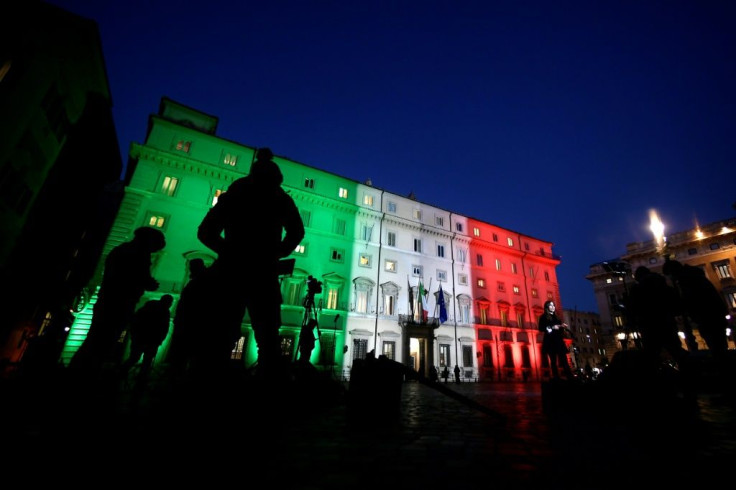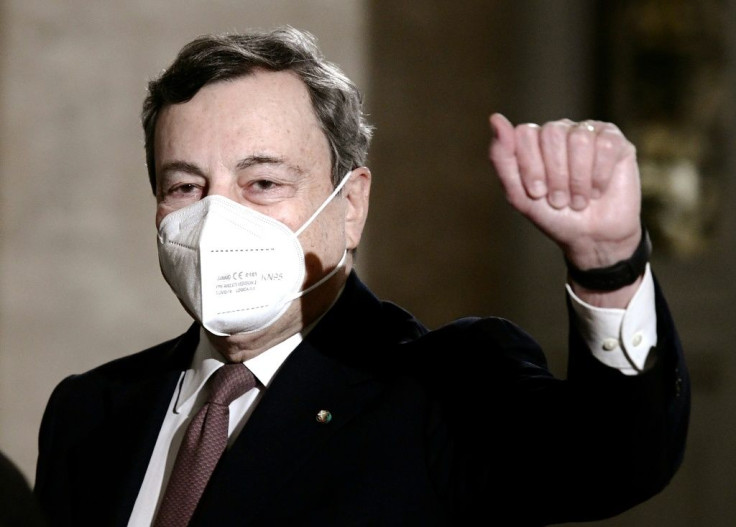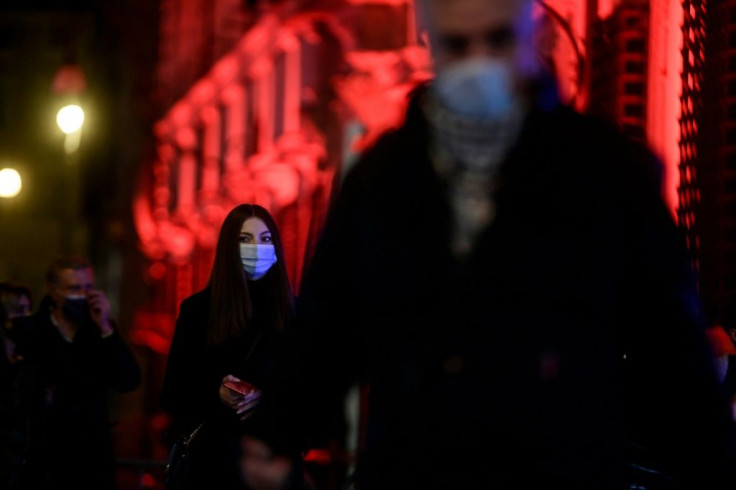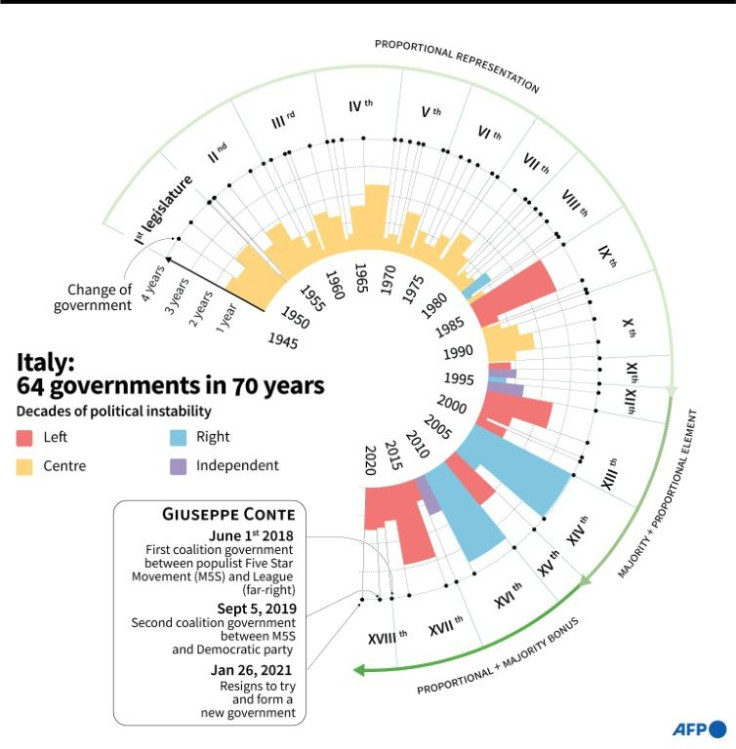Draghi Sets Out Plan To Rebuild Virus-hit Italy
Prime Minister Mario Draghi pledged Wednesday to use "all means" to fight the coronavirus pandemic that has devastated Italy, and said it presented an opportunity for the country to rebuild as it did after World War II.
In his first speech since taking office, the former European Central Bank chief listed the pandemic as his top priority of a long list of issues requiring urgent attention.
"The government will carry out reforms but will also tackle the emergency," he told the Senate, the upper house of parliament, where he has almost unanimous support for his new government of national unity.
The 73-year-old, parachuted in after the previous centre-left government collapsed, has been dubbed "Super Mario" since promising to do "whatever it takes" to save the euro during the 2012 debt crisis.

On Wednesday he promised to fight "with all means" the pandemic that has left more than 94,000 Italians dead and sparked a deep recession, with the economy contracting almost nine percent last year.
"Today we have, as did the governments of the immediate post-war period, the possibility -- or rather the responsibility -- to start a new reconstruction," Draghi said in his almost hour-long address.
His new government involves a wide range of parties from leftists to Silvio Berlusconi's Forza Italia, the populist Five Star Movement (M5S) and Matteo Salvini's eurosceptic, far-right League.
Draghi said backing him meant "sharing the prospect of an ever more integrated European Union that will arrive at a common public budget capable of supporting countries in times of recession".

He added: "Today, unity is not an option, unity is a duty."
Draghi was sworn in on Saturday as Italy's 30th prime minister since it became a republic, ending a month-long political crisis sparked by the implosion of ex-premier Giuseppe Conte's coalition.

On Wednesday, Draghi said it was a time of "intense emotion" personally to take over with Italy in such a "dramatic situation".
With rising concern about the spread of new coronavirus variants, which have sparked a series of mini-lockdowns in towns across Italy, Draghi emphasised the importance of speeding up vaccinations.
After a strong start in late December, the campaign has slowed, with only 1.3 million people out of a population of 60 million immunised so far.
And after almost 450,000 people lost their jobs last year, mostly women and young people, Draghi also underscored the importance of protecting all workers -- but said "it would be a mistake" to also save all companies from insolvency.

Another immediate challenge is drawing up a plan to spend what Draghi has previously called the "extraordinary resources" offered by the EU.
Italy expects to receive more than 200 billion euros ($240 billion) from the EU's post-coronavirus recovery fund, but in return, it is expected to commit to potentially difficult or unpopular reforms.
"These resources will have to be spent with an aim to improve the growth potential of our economy," Draghi said.
He promised reform to Italy's stifling bureaucracy, labyrinthine tax code and snail-paced justice system, as well as a focus on education, closing the gap on female employment and fighting climate change.
In a second speech on Wednesday evening, he also pleaded for a revival of a failed policy: forcing EU countries to each take a share of the migrants arriving from across the Mediterranean, after years of Italy shouldering much of the burden.
"As a concrete measure of solidarity, Italy -- supported equally by certain Mediterranean countries -- proposes a mechanism of obligatory redistribution of migrants," he said.
Draghi has assembled a cabinet comprising a mix of politicians and technocrats, with key portfolios linked to the EU reform agenda given to technocrats.
Late Wednesday, the Senate passed a vote of confidence -- 262 in favour, 40 against and two absentations -- in Draghi's government. There will be another vote in the lower Chamber of Deputies on Thursday.
The votes are largely procedural given how many parties support Draghi.
But tensions have already emerged within the coalition, notably over the government's decision Sunday to extend the closure of ski resorts just hours before they were due to reopen.
Salvini sharply criticised the decision, calling for billions of euros of reparations for affected businesses.
Meanwhile the M5S, which led the previous two governments under Giuseppe Conte, remains split over the decision to follow Draghi, and dozens of M5S lawmakers have threatened to vote against him.




















